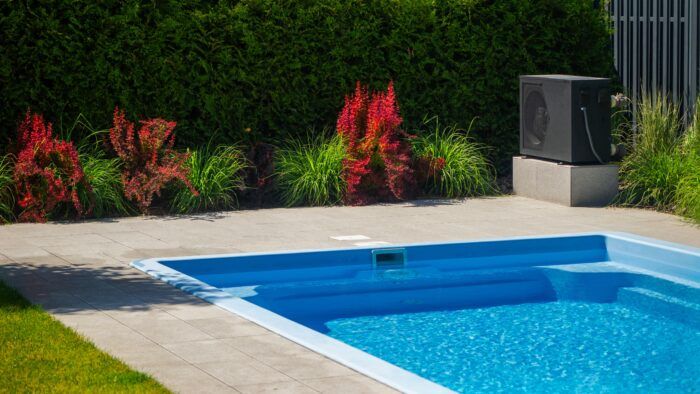
Filters promote cleanliness and keep pools looking their best. Just as an HVAC air filter captures dust and debris before it can circulate throughout your home, a pool filter removes contaminants such as dust, hair, and oils before they can compromise your swimming experience. Whether you’re a homeowner, pool maintenance professional, or both, there are several factors to consider before choosing the right filter. Mt. Lake Pool & Patio has a wide selection of pool supplies in Bucks County. Our team can offer insights and advice to help you choose the best pool filtration option.
Three Main Types of Pool Filters
First, choose the best type of filter for your needs. Sand, cartridge, and diatomaceous earth (DE) filters all have pros and cons.
Sand Filters
Many homeowners select sand filters, prevalent in commercial pools due to their low price point. Sand filters remove large contaminants between 20 and 40 microns in size. They’re easy to maintain and last up to seven years with regular maintenance. However, sand filters don’t capture smaller particles such as dust, blood, and bacteria. Plus, they require rinsing and backwashing, which wastes water and increases your water bill.
Cartridge Filters
Made of polyester or polypropylene, pleated cartridge filters do a great job blocking dirt and small particles between 10 and 15 microns. They use less water than sand filters and are easier to maintain. With more efficient filtration, you can enjoy a cleaner, healthier pool. Keep in mind that cartridge filters cost more than sand filters and that you’ll need to change them every three to five years.
Diatomaceous Earth (DE)
Diatomaceous earth filters trap small particles up to 10 microns in diameter. You only have to backwash them a few times a year, resulting in less water waste. DE filters last up to three years and cost more than other filter types. Check with your municipal government to find out the appropriate disposal protocol for DE filters.
Size Matters in Choosing the Right Filter
By partnering with our professional pool experts, you can choose the right size filter for your pool. Check out the gallons per minute rating to decide if a filter turns over all the water in your pool within a reasonable time. Here’s an example. A 24-foot round pool holds nearly 14,000 gallons of water. You may choose a sand filter with a turnover rate of 10 hours to keep your pool clean without breaking the bank.
Flow Rate Is Another Important Factor
Choose a filter that matches the gallons per minute (GPM) of the pump. Although they contribute to your pool’s sanitation, filters work in unison with the pump. The pump circulates water to avoid stagnation, while the filter collects small particles that can contaminate your pool. When in doubt, go with a larger filter.
Consider Local Regulations, Environmental Impact
DE filters use sedimentary rock to filter the water. Diatomaceous earth contains fossilized remains of algae-like organisms. They’re coated with DE powder that can have a negative impact on fish and wildlife. Find out if your municipality allows DE filters before purchasing one. Looking for an alternative? Sand and cartridge filters have much less impact on the environment.
How Powerful Is the Filter?
Many pool owners run their filters overnight to avoid overloading their electrical system. A powerful pump combined with a highly effective filter can keep your pool clean and beautiful. As discussed, DE filters are the most effective at filtering out contaminants, but cartridge filters run a close second and cost less. A pool maintenance pro can help you choose a powerful filter compatible with your pump and pool size.
Are you still worried about picking the right pool filter? Contact Mt. Lake Pool & Patio to discuss the type, size, and brand of pool filter that would best serve your family. We also provide comprehensive pool maintenance in Bucks County.

